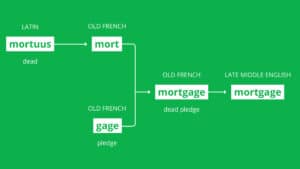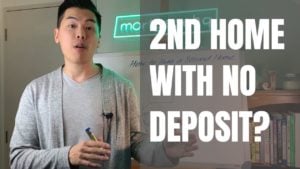What do you think one of the single worst things to happen could be when buying a property in New Zealand? We reckon that paying more than the place is worth would be right up there. Especially when you need to pay a higher deposit because the bank won’t accept the valuation you paid for.
Overpaying for a property is a very real possibility for many and an extremely unfortunate situation to be in. As a property investor, you should be using your head over your heart and have clear intent when buying properties. You also need rigorous methods to help you to determine what to offer on a property.
Also, consider this. Have you ever hesitated on placing an offer on a property because you were uncertain if the numbers stacked up? Only to find that it sold within the range of your ballpark figure and that it turned out to be a great investment opportunity. This kind of remorse can linger, but we have a solution so this never happens to you again.
Hesitation in this market means every opportunity will slip through your fingers. Houses can be sold within the first week of them being listed currently, and although this may cool in coming months and years, you shouldn’t wait for it to.
This doesn’t mean you need to blindly rush into purchasing properties. It means you need to be clued up and confident; prepared to seize available opportunities when they come.
Correct property valuation and knowing how it is done is your first step towards successfully negotiating a superb price. When you find the property value on your existing home, you can calculate the usable equity that you have. Then you’re able to confidently purchase lucrative investment properties.
So how can I find out the value of my home or a home valuation in Auckland/throughout New Zealand?
This article is designed to quickly offer reliable methods of:
1. real estate valuation,
2. government valuation and,
3. provide you with resources that offer free property valuation online.
If you want insights into how you can understand the data you find and understand what method of property valuation you should be using for what situation you are in, then read on.
That way, you can make informed decisions about the value of a property in any region in New Zealand and never again feel remorse for sitting on the fence.
Get a free bank e-Valuation of your property
When people contact us, the first step of our mortgage advice process is to prepare a free borrowing summary. This is a comprehensive spreadsheet that includes CCCFA servicing calculations, up-to-date bank valuations of your property or portfolio, compound effect calculator to identify your retirement gap, portfolio equity calculations and more.
Get your free borrowing summary here
What is the worst property valuation mistake that I can make?
Best to get this out in the open nice and early, so that you can orient yourself in the right direction when looking for a house value estimate. Let’s make sure that you know what the correct value of your house is in Auckland or beyond.
Unfortunately, this costly property valuation mistake is commonly relied upon by many. It is a data point that we all seemingly know and understand. When discussing house prices, we often revert to the CV.
The CV (capital value) of a property is an educated estimate of the value of a house, based on a variety of factors. These include the value of the land the house sits on, the value of the actual house, the location and what other homes have sold for in surrounding areas.
This seems pretty robust initially, but when we use CV plus a percentage as a guide for property valuation, which is often what real estate agents use when boasting how much properties sell for, we are missing out on a tonne of factors.
Think about those unique features of a house that can make it a desirable home. The number of bedrooms and bathrooms, the development potential the whole property might have.
The CV of a home is essentially just a government value placed on a property. It is designed to calculate rates. By holding the value of a house to ransom on this factor alone, it is likely you are misinterpreting the true value of a property.
How do real estate agents find my property value?
Although real estate agents often share how much they sell above CV, which we now know is relatively pointless to the trained eye, this is not what they normally use to determine property value.
Agents will do a CMA (comparative market analysis). The quality of these will vary hugely between different real estate companies. When trying to ‘win’ a listing, be mindful that some agents will source the highest possible value. This usually convinces the homeowner that they will sell the property for more than another agent will be able to.
We will discuss CMAs a little later in this article, as it is a beneficial house value estimator to have in your toolkit when determining how much a property is worth.
Let’s take a minute to talk about banks.
Whether you are an investor or a first home buyer, the most important valuation that you need to be paying attention to is the bank’s valuation. A bank will decide the level of risk that you pose should they lend to you. They do this through sourcing external, expert opinions of the market value of any given property.
Banks rely on external, online property valuations. Namely CoreLogic and Valocity.
You may approach the bank having found a legitimate, alternative property value that suits your financial situation. However, they may dismiss this and expect a higher deposit than you are prepared for.
These online resources can be accessed by you as well. You simply need to subscribe to their services. We recommend you take a look at doing this if you are on the hunt for a home or an investment property. It is a quick and effective way to obtain the same data that your bank is using as a house value estimator.
A mortgage broker can be excellent support at this point, so if you would like to get in touch with someone who knows CoreLogic and Valocity like the back of their hand, we are here to help. We have logins to these platforms and can order quick desktop based valuations for your research before you commit to paying for a valuer visiting the property.
We can offer you heavily discounted RPNZ CoreLogic access – subscribe using this link and our admin team will set you up with a login.
Who are CoreLogic and Valocity and why do banks use them for property valuations?
CoreLogic is an independent company. It is one of the leading data providers in New Zealand relating to the housing market. Banks order from CoreLogic an Automated Valuation Model (AVM) report, known to CoreLogic as the EV (Estimated Value) report. They use their millions of data points to provide the information.
The AVM report that your bank will order from Valocity is known as an iVal. Valocity is simply a different company doing the same thing, perhaps obtaining data from different sources. Therefore it will provide a different report for the bank.
These reports can vary in a meaningful way – if one bank values your property lower than an alternative bank it can have an impact on:
- Usable equity limits for recycling equity or topping up your mortgage
- How quickly you can remove Low Equity Fees
- If you qualify for ‘special’ interest rates
Accessing a better property valuation is one reason people consider transferring their mortgage to another bank. When you talk with a mortgage advisor they will be able to guide you through which banks use which valuations and advise you on other aspects of specific bank’s lending policies which will help you find the correct bank for your current situation and future goals. To see what impact banks lending policies page read our mortgage calculator page which has examples of a couples affordability across multiple banks.
AVMs are more robust than your capital value (CV) estimates because they take into account more features of a property such as the number of bedrooms. Also, as they consider some data relating to the size and location of a property, as well as past sales, you have valuable information at your fingertips regarding how much a property is worth.
Banks sometimes require a Registered Valuation. This involves you paying about $1000 for a valuer to come onto a property and inspect it. This is to determine the market value that is extremely accurate for that specific moment. This obviously has its advantages.
Understanding when you need a Registered Valuation is something we will touch on again in a moment.
Should I get a registered property valuation in Auckland?
Before we mentioned that banks can sometimes ask for a Registered Valuation in order to determine whether you will be approved for a mortgage for a particular property.
The smaller your deposit is, or if you are attempting to obtain a top up from the bank in order to pay for the deposit of an investment property, the more likely it is the bank will require a Registered Valuation.
A Registered Property Valuation is one of the more accurate methods that you can use to determine the value of your home, although to complicate matters, not all valuers are accepted by all banks. Make sure that the professional that you use is recognised by your bank as an accredited Registered Valuer. They call it ‘on the panel’.
The valuation of property in NZ is forever changing, with market analysis quickly becoming outdated. Without a professional actually taking a look at the unique features of a property, assessing the street appeal and considering the benefits that may otherwise not be noticed in statistical data, there is scope for error.
Here are some situations that may necessitate a Registered Valuation to occur:
- When you are purchasing a property privately (not using a real estate agent)
- If you are building a new property
- When you have less than a 20% deposit
- If the bank’s property valuation estimate is significantly less than what you are prepared to pay.
Other situations will arise as well that have not been mentioned. If you’re unsure whether forking out for a professional valuation is a good idea, then just give us a call and have a chat about your situation for some advice.
As the desire for property in Auckland specifically is so high at the moment, having a Registered Valuation on a property is generally a safe option. It’s not hard to imagine a situation where you are at a much greater risk of paying more than a house is valued at. Sellers become overly confident and buyers more desperate.
If you are able to spare the $1000 that a Registered Valuation costs, it is definitely worth the certainty, peace of mind and recognition from the bank to obtain this valuation of property. You can confidently say that I know the value of my home by having a Registered Valuation.
How can I get a free property valuation online? Is it worth it?
A Comparative Market Analysis (CMA) is a tool that real estate agents use to figure out the expected value of a home in NZ. This gives the agent a lot of talking points with potential customers, whether they be the seller or a buyer.
You can obtain a CMA, or something similar, online and it is free. This makes it a brilliant resource for you to use at your convenience to understand home valuation NZ.
When you have a CMA as a free online property valuation tool, you have essentially gathered data from a range of available sources. When doing this alone, it can take a lot of time and energy. Thankfully, these days, we have a lot of free online home valuation websites to use.
If you are looking to sell, then you can speak directly with a real estate agent and ask them to create a market appraisal for your property. This is a formal, written report and includes the CMA that agents often rely on.
It is free of charge and you will receive a host of additional information so that you can say that I know the value of my property. It is best to ask a few real estate agents to provide this service so that you can calculate an average to eliminate outliers.
Expect real estate agents to continue to contact you after this however, as they become aware of your potential interest in selling your property. They understandably wish for you to list your property with them.
If however, you are interested in purchasing property and not looking to sell your own, you need to source the information yourself somehow. Property valuation websites such as OneRoof.co.nz and Homes.co.nz offer free, online property valuations for you to easily make use of.
These websites simply collate comparable data from other properties that have sold recently and take into account other trends and factors to provide a detailed analysis for you, for free.
We would like to take the time to point out that these free property valuation resources, although useful, are not entirely reliable. You need to be able to compare apples for apples when gathering data and as we all know, not every house on the same street is worth the same.
Also, these online property valuations are never 100% up to date and with the red hot and somewhat volatile market such as it is, a couple of months makes a huge difference.
How do I calculate my own property value estimate (CMA)?
You’re wise if you’re thinking, ‘well, if I use these free online property valuation tools and apply some of my own knowledge, would I be able to calculate a more accurate property value estimate to understand the value of my home?’
We can help with this.
If you’re not looking to subscribe to CoreLogic or Valocity, you’re not interested in a market appraisal from a real estate agent or else pay for a Registered Valuation just yet, then all is not lost in finding a reliable valuation of a property in NZ.
When you understand that free online property valuations through Homes.co.nz and OneRoof.co.nz provide you with a starting point in determining value, then you can do a little extra research to fine tune that figure.
Additional research may include:
- Consider the unique features of your property and find other homes with similar features. Compare these other homes with listings that are generally similar and calculate the difference in selling prices. This intuitive work is what valuers do that moves their registered valuations beyond being an automatic CMA.
- Data driven analytics fail to see into the future. But if you have knowledge of anything happening in the immediate area of a given property that may have an impact, then factor this in.
- Look not only at past sales, but the asking price of current sales of comparable properties.
- Also look at asking prices of properties that might have been unsuccessful, or at least were slower than average to sell. Consider the potential reasons for this. Perhaps the asking price is too high, there are bad photos, or the property is in dire need of big renovations.
- Look at the government valuation, the RV (ratings or rateable value) and compare this with the CMA that you have since fine tuned.
Is the Government valuation of property useful?
The Government decides the value of a property using various methods of their own. This is so they can determine the correct amount of rates that a homeowner is expected to pay year on year.
Both RV (when referring to the ratings value and not registered valuation as it can otherwise stand for), or CV (capital value) are interchangeable terms and are associated with the government valuation of a property.
Rates are calculated on the land value of all properties and are reassessed every three years. The calculation does not take into account any renovations not requiring consent that could have been done on the property over that time. Rates are akin to a property tax and are paid to your local council to provide revenue.
Looking at it this way, the government property valuation therefore does not provide us with any real clues as to what a property is worth in the current market.
The RV of a property could have an impact on the saleability of that land, however. There may be a chance that the rates of a property could be considerably higher than neighbouring properties. Potential buyers will need to take this into account and higher rates may hinder purchasing interest. Some people even apply to the council to have their RV reduced to lower their rates bills!
So there is a reason to look at the Government property valuation and it does have its use, although it is not as valuable as other resources that we have available to us to determine the market value of property.
Why do some properties sell for so much?
This is definitely a question on many people’s lips right now as we see expected sales prices continually being blown out of the water. This is not just a regional occurrence, but is happening month on month, all across New Zealand.
After taking into consideration situational pressures and the psychological factors of real estate currently, there is a reason why a buyer might be willing to confidently purchase a property above what all calculations consider to be the property’s valuation.
Perhaps the buyer used a Development Potential Valuation. This kind of valuation considers the maximum usage of the land. If a buyer is looking to develop additional investment opportunities on that land, they would certainly feel confident enough to offer well above asking price.
They know that their expected returns after development is significantly greater than what they are initially investing.
There are three key factors that need to be considered in a Development Potential Valuation.
- There needs to be an accurate, feasible plan already put in place. If the valuation is based purely on intention and expectation, then it is inconceivably risky.
- An accurate estimate needs to be in place of the cost of building the development,
- As well as an accurate estimate of what the end product can be sold for.
For example, a buyer needs to have confidently calculated all expected costs of developing a small subdivision on some land they are looking to purchase. They need to compare this with the expected price at which they can reasonably sell each subdivided plot of land, or built house, for.
The minimum margin would be 25%.
You are required to do copious amounts of research in order to reach this stage; a time costly journey that we here at mortgagehq can support you with.
As we have a lot of prior experience and knowledge with property development, we can keep you focused, motivated and get your foot in the door by quickly advancing you through initial stages. Essentially we may be able to make your development dreams a reality.
Video Guide: What to pay for my next property?
Check out this quick video guide of all that we have gone over here today, plus some additional concepts that help you to understand what to pay for my next property.
We have explained the most important property valuation that needs to be considered: your bank’s valuation. You now also know how it is that they get the information they use to value a property.
Since we know that they use CoreLogic and Valocity to receive an AVM report, we too can use these online resources to align ourselves with our potential lender. That way we are on the same page from the get-go.
Nobody wants any nasty surprises when it comes to deposit expectations.
When buying and selling a home, most of us go through real estate agents. They use CMAs in their market appraisals to compare a whole heap of relevant data to come up with a pretty robust estimate of the value of a property.
It isn’t entirely reliable however, there are a lot of unique features to a property that will often be overlooked with this method. A Registered Valuation can cover those outliers. There are many benefits to having a registered valuation, although it is an expensive avenue to take.
If you don’t use a real estate agent when buying or selling a home, then it is imperative that you get a Registered Valuation. Your bank might want you to have one anyway, so if you are able to fork out the $1000 to get it, you won’t go amiss with that additional information and property valuation security.
The government valuation is often looked at as a comparison to market selling price. Some agents boast about how much a property has sold over the CV (capital value) or RV (rateable value).
You’re in the know now, understanding that a government value has little to do with the market value of a property. They are completely separate values.
Again, here is that video that you will want to check out.
Property valuation can be daunting. You don’t want to be making the mistake of paying for more than a property is worth, unless of course you have solid developmental plans in place and expect at least a 25% margin of returns.
To ensure you are paying what a property is worth please: use some of the free online property valuation resources available online, talk with an Auckland mortgage advisor with experience about your investment goals, and use tools such as a Registered Valuation.













